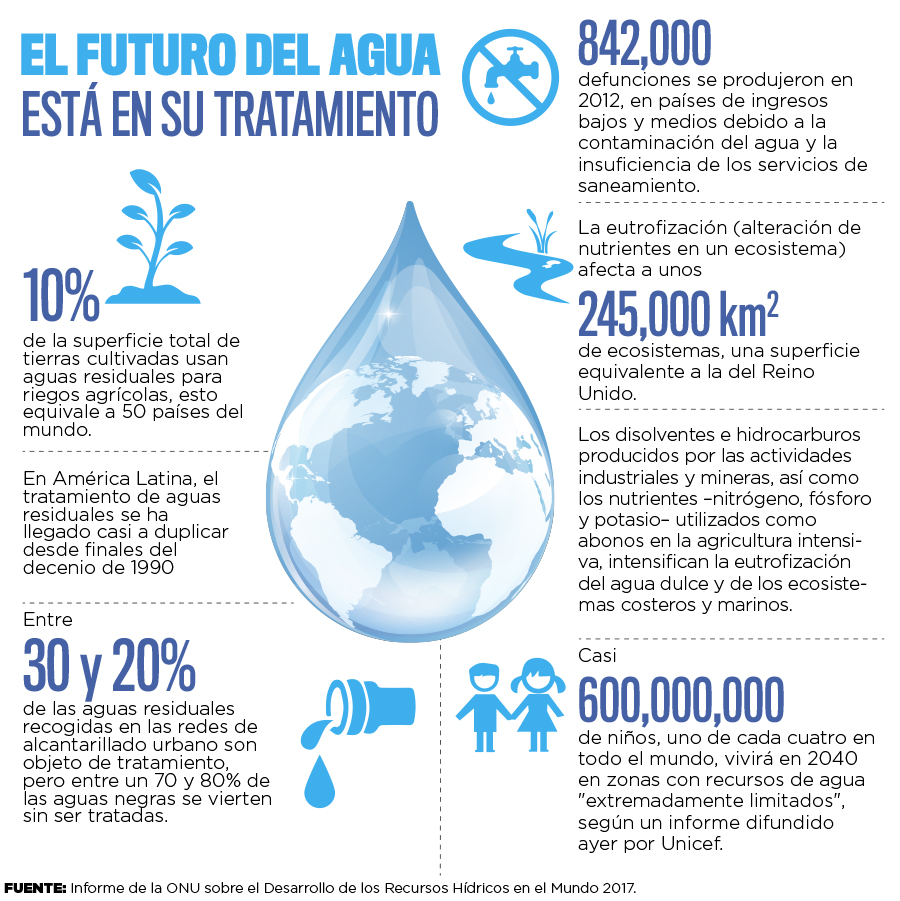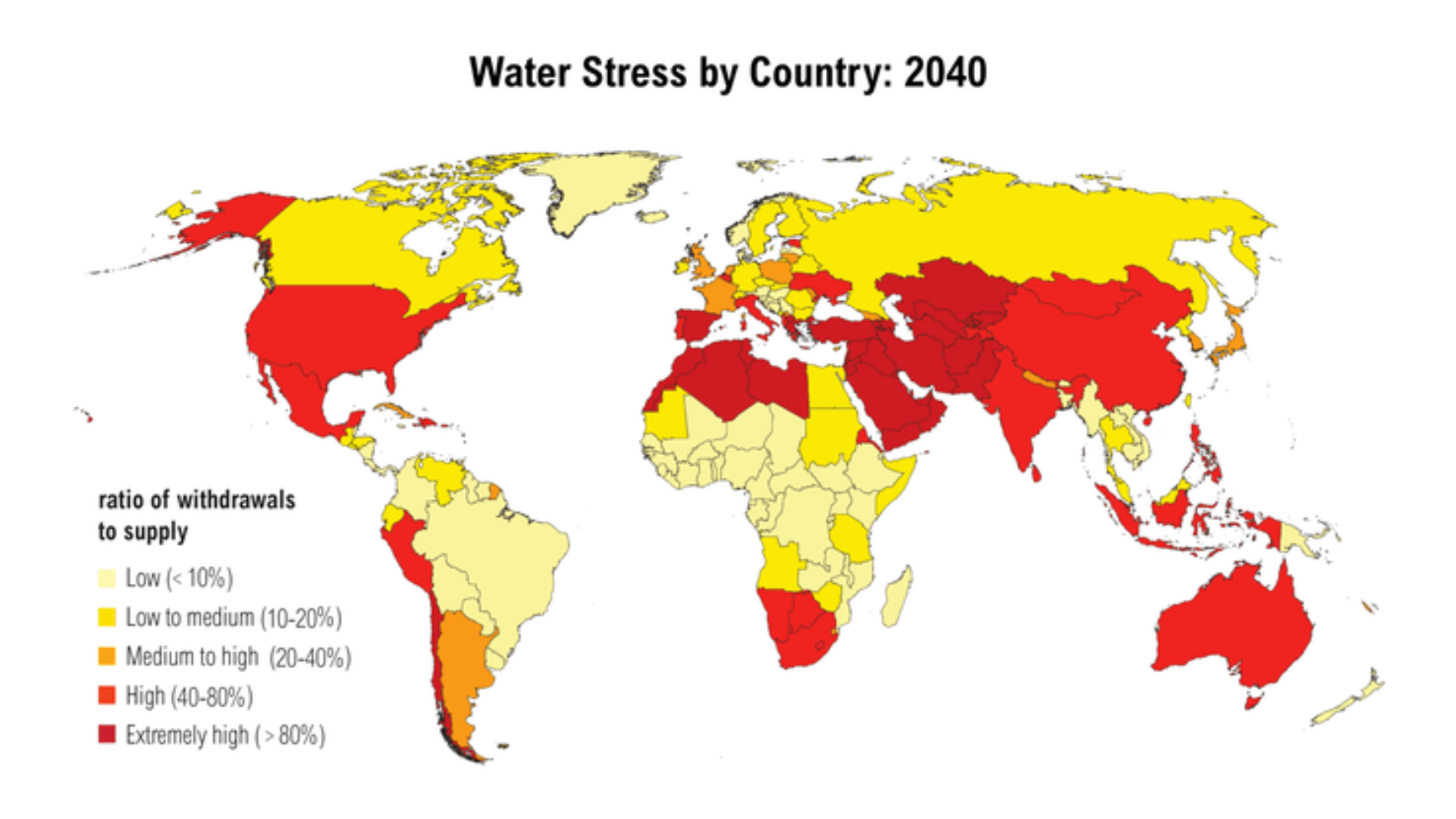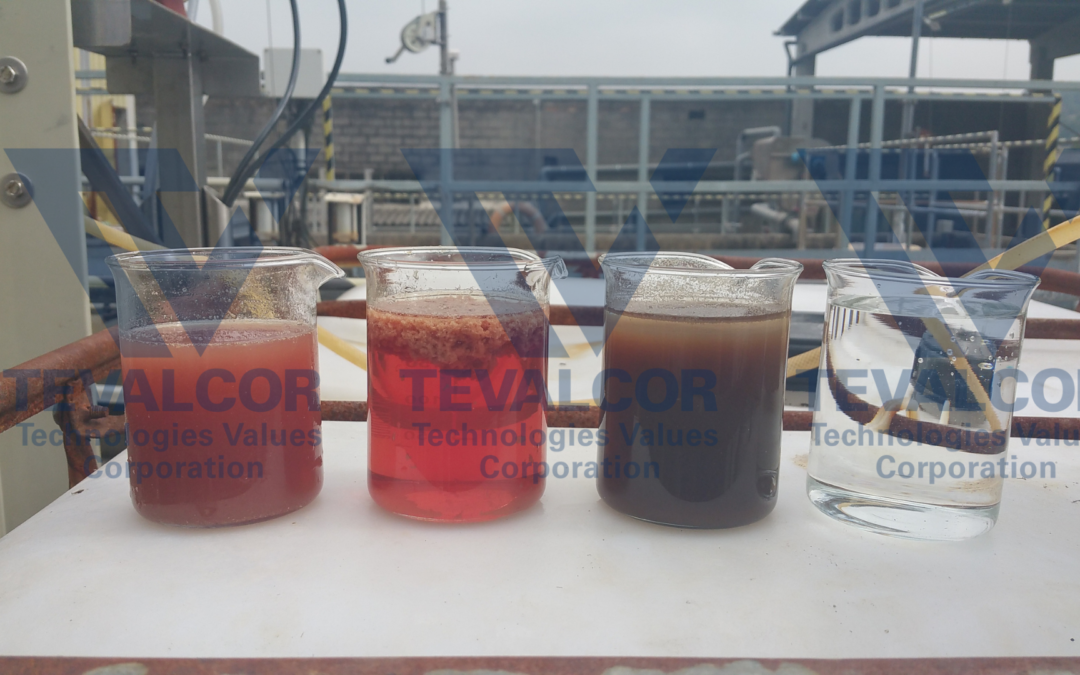The proper management of wastewater is one of today’s major environmental concerns.
According to UNESCO, it is estimated that around 359 billion cubic metres of wastewater is generated worldwide each year, of which only 20-30% receives adequate treatment before being discharged into the environment [1].
This means that 80% – 70% of the wastewater generated worldwide is discharged without prior treatment, which has serious consequences for human health and the environment.
According to the World Health Organisation (WHO), contaminated water is a major cause of disease and death, especially in developing countries. It is estimated that around 842,000 deaths per year are caused by diseases related to lack of access to safe water and sanitation [2].

Between 80% and 70% of the wastewater generated in the world is discharged without prior treatment.
On the other hand, as the world’s population grows and demand for water increases, it becomes increasingly important to manage wastewater properly to ensure that the available water is of good quality and sufficient for all.
The implementation of efficient and sustainable wastewater treatment systems is essential to mitigate water stress and ensure adequate water availability in the future.

The implementation of efficient and sustainable wastewater treatment systems is essential to mitigate water stress.
There are different methods and technologies available, ranging from conventional treatment systems to more innovative and efficient options.
Some common technologies include physico-chemical treatment, advanced oxidation, disinfection and biological treatment systems.
The choice of treatment method will depend on factors such as the type of pollutants present in the water, the volume of water to be treated and the specific characteristics of the environment.
The choice of method will depend on factors such as: pollutants present, volume of water to be treated and specific characteristics of the environment.
In the following publications, we will take a closer look at the different technologies available for wastewater treatment and explore in detail how they can be effectively applied in the business environment.
We will cover both conventional and innovative technologies, analysing their advantages, challenges and success stories.

If you would like to learn more about wastewater treatment around the world, I recommend the following additional resource:
- “Progreso en el tratamiento de las aguas residuales” Informe del Indicador 6.3.1 sobre el progreso en el tratamiento de aguas residuales, por ONU-Hábitat: Enlace al documento
References: [1] UNESCO. (Consultado en mayo de 2023). Gestión de las aguas residuales. Recuperado de https://unesdoc.unesco.org/ark:/48223/pf0000247647 [2] Organización Mundial de la Salud (OMS). (Consultado en mayo de 2023). Agua y saneamiento. Recuperado https://www.who.int/es/news/item/12-07-2017-2-1-billion-people-lack-safe-drinking-water-at-home-more-than-twice-as-many-lack-safe-sanitation


Recent Comments